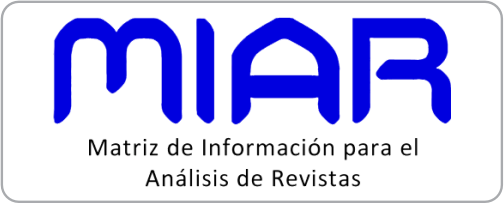Sistemas inteligentes y su aplicación en la evaluación del desempeño académico universitario: una revisión de la literatura en el contexto sudamericano
DOI:
https://doi.org/10.51252/rcsi.v4i2.671Palabras clave:
aprendizaje automático, equidad educativa, inteligencia artificial, retroalimentaciónResumen
El estudio tuvo como objetivo analizar el impacto de los sistemas inteligentes en la mejora del rendimiento académico y la personalización del aprendizaje, mediante una revisión de 29 artículos publicados entre 2016 y 2024. Se centró en el uso de la inteligencia artificial, el aprendizaje automático, la minería de datos y los sistemas de tutoría inteligentes en la educación. Los resultados mostraron que estas tecnologías optimizan la evaluación educativa y mejoran el rendimiento académico. Los modelos predictivos identifican a estudiantes en riesgo de abandono escolar, facilitando intervenciones tempranas. Las arquitecturas adaptativas demostraron ser efectivas en diversas disciplinas, y los sistemas de tutoría inteligentes mejoraron la interacción y la retroalimentación. A pesar de estos avances, persisten desafíos en la accesibilidad en entornos con recursos limitados, y preocupaciones éticas relacionadas con la privacidad de los datos y el sesgo algorítmico. El estudio resalta la necesidad de un enfoque inclusivo y ético para garantizar que estas tecnologías transformen la educación y beneficien a todos los estudiantes.
Citas
Abulibdeh, A., Zaidan, E., & Abulibdeh, R. (2024). Navigating the confluence of artificial intelligence and education for sustainable development in the era of industry 4.0: Challenges, opportunities, and ethical dimensions. Journal of Cleaner Production, 437, 140527. https://doi.org/10.1016/j.jclepro.2023.140527
Akinwalere, S. N., & Ivanov, V. (2022). Artificial Intelligence in Higher Education: Challenges and Opportunities. Border Crossing, 12(1), 1–15. https://doi.org/10.33182/bc.v12i1.2015
Alfaro, L., Rivera, C., & Luna-Urquizo, J. (2019). Using Project-based learning in a Hybrid e-Learning system model. International Journal of Advanced Computer Science and Applications, 10(10), 426–436. https://doi.org/10.14569/ijacsa.2019.0101059
Ali, O., Murray, P. A., Momin, M., Dwivedi, Y. K., & Malik, T. (2024). The effects of artificial intelligence applications in educational settings: Challenges and strategies. Technological Forecasting and Social Change, 199, 123076. https://doi.org/10.1016/j.techfore.2023.123076
Álvarez, D., Melillán, A., Cravero, A., & Sepúlveda, S. (2023). Proposed Model for the Alignment between Curriculum Design and IT | Propuesta de Modelo para el Alineamiento entre el Diseño Curricular y las TI. RISTI - Revista Iberica de Sistemas e Tecnologias de Informacao, 2023(E59), 531–543.
Balasubramaniam, N., Kauppinen, M., Rannisto, A., Hiekkanen, K., & Kujala, S. (2023). Transparency and explainability of AI systems: From ethical guidelines to requirements. Information and Software Technology, 159, 107197. https://doi.org/10.1016/j.infsof.2023.107197
Carlotto, T., & Jaques, P. A. (2016). The effects of animated pedagogical agents in an English-as-a-foreign-language learning environment. International Journal of Human Computer Studies, 95, 15–26. https://doi.org/10.1016/j.ijhcs.2016.06.001
Cronin, P., Ryan, F., & Coughlan, M. (2008). Undertaking a literature review: a step-by-step approach. British Journal of Nursing, 17(1), 38–43. https://doi.org/10.12968/bjon.2008.17.1.28059
de Brito Lima, F., Lautert, S. L., & Gomes, A. S. (2022). Learner behaviors associated with uses of resources and learning pathways in blended learning scenarios. Computers and Education, 191. https://doi.org/10.1016/j.compedu.2022.104625
Delerna Rios, G. E., & Levano Rodriguez, D. (2021). Importancia de las tecnologías de información en el fortalecimiento de competencias pedagógicas en tiempos de pandemia. Revista Científica de Sistemas e Informática, 1(1), 69–78. https://doi.org/10.51252/RCSI.V1I1.104
Díaz, B., & Nussbaum, M. (2024). Artificial intelligence for teaching and learning in schools: The need for pedagogical intelligence. Computers and Education, 217. https://doi.org/10.1016/j.compedu.2024.105071
Durães, D., Toala, R., Gonçalves, F., & Novais, P. (2019). Intelligent tutoring system to improve learning outcomes. AI Communications, 32(3), 161–174. https://doi.org/10.3233/AIC-190624
Flores, V., Heras, S., & Julián, V. (2022). A New Methodological Framework for Project Design to Analyse and Prevent Students from Dropping Out of Higher Education. Electronics (Switzerland), 11(18). https://doi.org/10.3390/electronics11182902
Freitas, F. A. D. S., Vasconcelos, F. F. X., Peixoto, S. A., Hassan, M. M., Ali Akber Dewan, M., de Albuquerque, V. H. C., & Rebouças Filho, P. P. (2020). IoT system for school dropout prediction using machine learning techniques based on socioeconomic data. Electronics (Switzerland), 9(10), 1–14. https://doi.org/10.3390/electronics9101613
García-Martínez, I., Fernández-Batanero, J. M., Fernández-Cerero, J., & León, S. P. (2023). Analysing the Impact of Artificial Intelligence and Computational Sciences on Student Performance: Systematic Review and Meta-analysis. Journal of New Approaches in Educational Research, 12(1), 171–197. https://doi.org/10.7821/naer.2023.1.1240
Garcia, C., & Lemos, N. (2023). The Gamification of E-learning Environments for Learning Programming. International Journal on Informatics Visualization, 7(2), 455–462. https://doi.org/10.30630/joiv.7.2.1602
Gligorea, I., Cioca, M., Oancea, R., Gorski, A.-T., Gorski, H., & Tudorache, P. (2023). Adaptive Learning Using Artificial Intelligence in e-Learning: A Literature Review. Education Sciences, 13(12), 1216. https://doi.org/10.3390/educsci13121216
Gomede, E., de Barros, R. M., & de Souza Mendes, L. (2020). Use of deep multi-target prediction to identify learning styles. Applied Sciences (Switzerland), 10(5). https://doi.org/10.3390/app10051756
Gomez, A., Chamba Eras, L. A., & Aguilar, J. (2021). Multi-agent systems for the management of resources and activities in a smart classroom. IEEE Latin America Transactions, 19(9), 1511–1519. https://doi.org/10.1109/TLA.2021.9468444
Guanin-Fajardo, J. H., Guaña-Moya, J., & Casillas, J. (2024). Predicting Academic Success of College Students Using Machine Learning Techniques. Data, 9(4). https://doi.org/10.3390/data9040060
Huaman Llanos, A. A., Huatangari, L. Q., Yalta Meza, J. R., & Monteza, A. H. (2023). Leveraging Text Mining for Analyzing Students’ Preferences in Computer Science and Language Courses. Ingenierie Des Systemes d’Information, 28(5), 1265–1273. https://doi.org/10.18280/isi.280515
Jaramillo-Morillo, D., Ruipérez-Valiente, J. A., Burbano Astaiza, C. P., Solarte, M., Ramirez-Gonzalez, G., & Alexandron, G. (2022). Evaluating a learning analytics dashboard to detect dishonest behaviours: A case study in small private online courses with academic recognition. Journal of Computer Assisted Learning, 38(6), 1574–1588. https://doi.org/10.1111/jcal.12734
Kamalov, F., Santandreu Calonge, D., & Gurrib, I. (2023). New Era of Artificial Intelligence in Education: Towards a Sustainable Multifaceted Revolution. Sustainability, 15(16), 12451. https://doi.org/10.3390/su151612451
Lim, T., Gottipati, S., & Cheong, M. L. F. (2023). Ethical Considerations for Artificial Intelligence in Educational Assessments. In Creative AI Tools and Ethical Implications in Teaching and Learning (pp. 32–79). https://doi.org/10.4018/979-8-3693-0205-7.ch003
Luna-Urquizo, J. (2019). Learning management system personalization based on multi-attribute decision making techniques and intuitionistic fuzzy numbers. International Journal of Advanced Computer Science and Applications, 10(11), 669–676. https://doi.org/10.14569/IJACSA.2019.0101188
Malik, A. R., Pratiwi, Y., Andajani, K., Numertayasa, I. W., Suharti, S., Darwis, A., & Marzuki. (2023). Exploring Artificial Intelligence in Academic Essay: Higher Education Student’s Perspective. International Journal of Educational Research Open, 5, 100296. https://doi.org/10.1016/j.ijedro.2023.100296
Martinez-Carrascal, J. A., Munoz-Gama, J., & Sancho-Vinuesa, T. (2024). Evaluation of Recommended Learning Paths Using Process Mining and Log Skeletons: Conceptualization and Insight into an Online Mathematics Course. IEEE Transactions on Learning Technologies, 17, 555–568. https://doi.org/10.1109/TLT.2023.3298035
Melillán, A., & Cravero, A. (2022). Software engineering in the development of technologies to support curriculum design: A systematic mapping | Ingeniería de Software en el desarrollo de tecnologías para el apoyo al diseño curricular: Un mapeo sistemático. RISTI - Revista Iberica de Sistemas e Tecnologias de Informacao, 2022(E50), 322–334.
Mellado, R., Cubillos, C., Vicari, R. M., & Gasca-Hurtado, G. (2024). Leveraging Gamification in ICT Education: Examining Gender Differences and Learning Outcomes in Programming Courses. Applied Sciences (Switzerland), 14(17). https://doi.org/10.3390/app14177933
Mendoza, W., Ramírez, G. M., González, C., & Moreira, F. (2022). Assessment of Curriculum Design by Learning Outcomes (LO). Education Sciences, 12(8). https://doi.org/10.3390/educsci12080541
Mhlongo, S., Mbatha, K., Ramatsetse, B., & Dlamini, R. (2023). Challenges, opportunities, and prospects of adopting and using smart digital technologies in learning environments: An iterative review. Heliyon, 9(6), e16348. https://doi.org/10.1016/j.heliyon.2023.e16348
Nieto, Y., García-Díaz, V., Montenegro, C., & Crespo, R. G. (2019). Supporting academic decision making at higher educational institutions using machine learning-based algorithms. Soft Computing, 23(12), 4145–4153. https://doi.org/10.1007/s00500-018-3064-6
Pincay-Ponce, J., Herrera-Tapia, J., Terranova-Ruiz, J., Cruz-Felipe, M., Sendón-Varela, J., & Fernández-Capestany, L. (2022). Educational data mining: Incidence of socioeconomic factors on school achievement | Minería de datos educativos: Incidencia de factores socioeconómicos en el aprovechamiento escolar. RISTI - Revista Iberica de Sistemas e Tecnologias de Informacao, 2022(E49), 654–667.
Rodríguez, M. F., Nussbaum, M., Yunis, L., Reyes, T., Alvares, D., Joublan, J., & Navarrete, P. (2022). Using scaffolded feedforward and peer feedback to improve problem-based learning in large classes. Computers and Education, 182. https://doi.org/10.1016/j.compedu.2022.104446
Salazar, C., Montoya-Múnera, E., & Aguilar, J. (2023). Sentiment analysis in learning resources. Journal of Computers in Education, 10(4), 637–662. https://doi.org/10.1007/s40692-022-00237-9
Souza, A. S. C. de, & Debs, L. (2024). Concepts, innovative technologies, learning approaches and trend topics in education 4.0: A scoping literature review. Social Sciences & Humanities Open, 9, 100902. https://doi.org/10.1016/j.ssaho.2024.100902
Theophilou, E., Sanchez-Reina, R., Hernandez-Leo, D., Odakura, V., Amarasinghe, I., & Lobo-Quintero, R. (2024). The effect of a group awareness tool in synchronous online discussions: studying participation, quality and balance. Behaviour and Information Technology, 43(6), 1149–1163. https://doi.org/10.1080/0144929X.2023.2200543
Vázquez-Cano, E., Mengual-Andrés, S., & López-Meneses, E. (2021). Chatbot to improve learning punctuation in Spanish and to enhance open and flexible learning environments. International Journal of Educational Technology in Higher Education, 18(1). https://doi.org/10.1186/s41239-021-00269-8
Villegas-Ch, W., Palacios-Pacheco, X., & Luján-Mora, S. (2020). A business intelligence framework for analyzing educational data. Sustainability (Switzerland), 12(14), 1–21. https://doi.org/10.3390/su12145745
Villegas-Ch, W., Roman-Cañizares, M., Sánchez-Viteri, S., García-Ortiz, J., & Gaibor-Naranjo, W. (2021). Analysis of the state of learning in university students with the use of a hadoop framework. Future Internet, 13(6). https://doi.org/10.3390/fi13060140
Vives, L., Cabezas, I., Vives, J. C., Reyes, N. G., Aquino, J., Condor, J. B., & Altamirano, S. F. S. (2024). Prediction of Students’ Academic Performance in the Programming Fundamentals Course Using Long Short-Term Memory Neural Networks. IEEE Access, 12, 5882–5898. https://doi.org/10.1109/ACCESS.2024.3350169
Wang, S., Wang, F., Zhu, Z., Wang, J., Tran, T., & Du, Z. (2024). Artificial intelligence in education: A systematic literature review. Expert Systems with Applications, 252, 124167. https://doi.org/10.1016/j.eswa.2024.124167
Zapata-Medina, D., Espinosa-Bedoya, A., & Jiménez-Builes, J. A. (2024). Improving the Automatic Detection of Dropout Risk in Middle and High School Students: A Comparative Study of Feature Selection Techniques. Mathematics, 12(12). https://doi.org/10.3390/math12121776
Zhai, X., Chu, X., Chai, C. S., Jong, M. S. Y., Istenic, A., Spector, M., Liu, J.-B., Yuan, J., & Li, Y. (2021). A Review of Artificial Intelligence (AI) in Education from 2010 to 2020. Complexity, 2021(1). https://doi.org/10.1155/2021/8812542

Descargas
Publicado
Cómo citar
Número
Sección
Licencia
Derechos de autor 2024 Magdalena Del-Águila-Castro

Esta obra está bajo una licencia internacional Creative Commons Atribución 4.0.
Los autores retienen sus derechos:
a. Los autores retienen sus derechos de marca y patente, y tambien sobre cualquier proceso o procedimiento descrito en el artículo.
b. Los autores retienen el derecho de compartir, copiar, distribuir, ejecutar y comunicar públicamente el articulo publicado en la Revista Científica de Sistemas e Informática (RCSI) (por ejemplo, colocarlo en un repositorio institucional o publicarlo en un libro), con un reconocimiento de su publicación inicial en la RCSI.
c. Los autores retienen el derecho a hacer una posterior publicación de su trabajo, de utilizar el artículo o cualquier parte de aquel (por ejemplo: una compilación de sus trabajos, notas para conferencias, tesis, o para un libro), siempre que indiquen la fuente de publicación (autores del trabajo, revista, volumen, número y fecha).














